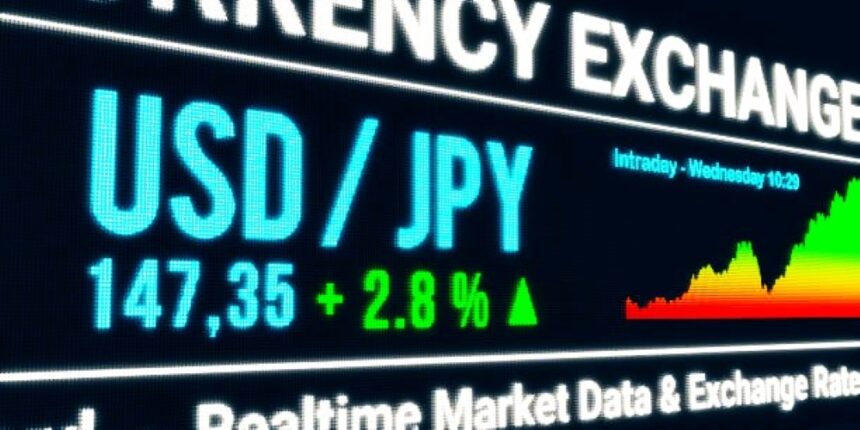Japanese yen appreciated as a result of BoJ Governor Ueda’s hawkish statement in Parliament.
The Japanese yen (JPY) rose for the second day in a row as Bank of Japan Governor Kazuo Ueda’s bullish statements contrasted with Federal Reserve Chair Jerome Powell’s dovish position.
The USDJPY pair falls due to different policy outlooks between the two central banks.
Governor Ueda of the Bank of Japan stated in Parliament on Friday that if its economic estimates are correct, the central bank may hike interest rates even more. Furthermore, July’s National Consumer Price Index (CPI) inflation figures. remained at its highest level since February, confirming the Bank of Japan’s hawkish stance on policy outlook.
The US dollar fell following Fed Chair Powell’s dovish attitude at the Jackson Hole Symposium.
The US dollar (USD) falls as the prospects of a September rate drop increase. Fed Chairman Jerome Powell declared at the Jackson Hole Symposium, “The time has come for policy to adjust.” Powell did not, however, say when or how much the rate decreases would be.
Traders expect the US central bank will lower interest rates by at least 25 basis points in September. According to the CME FedWatch Tool, markets now fully expect the Federal Reserve to decrease interest rates by at least 25 basis points (bps) at its September meeting.
Daily Market movers.Japanese yen rise following a hawkish comment by BoJ Ueda.
Bloomberg reported that the Japanese yen rose following a hawkish comment by BoJ Ueda. Friday, Philadelphia Fed President Patrick Harker underscored the necessity for the US central bank to gradually reduce interest rates. Meanwhile, Reuters reported. Chicago Fed President Austan Goolsbee stated that monetary policy is currently at its most restrictive, with the Fed now focusing on meeting its employment mission.
Governor Kazuo Ueda of the Bank of Japan (BoJ) told the Japanese parliament on Friday that he is “not considering selling long-term Japanese government bonds (JGBs) as a tool for adjusting interest rates.” He stated that any reduction in JGB purchases would only account for 7-8% of the balance sheet, which is a negligible decrease. Ueda noted that if the economy coincides with their expectations, there could be a phase where they may modestly modify interest rates. further.
In July, Japan’s National Consumer Price Index climbed by 2.8% year on year, sustaining the rate for the third straight month and reaching its highest level since February. Additionally, the National CPI excluding Fresh Food increased by 2.7%, the highest reading since February, in line with predictions.
The US Composite PMI fell to 54.1 in August, a four-month low, from 54.3 in July, but it still above market estimates of 53.5. This demonstrates sustained expansion in US business activity, with 19 consecutive months of growth.
According to the FOMC minutes from July’s policy meeting, most Fed members agreed last month that they would likely lower their benchmark interest rate at the September meeting as long as inflation remained low.









